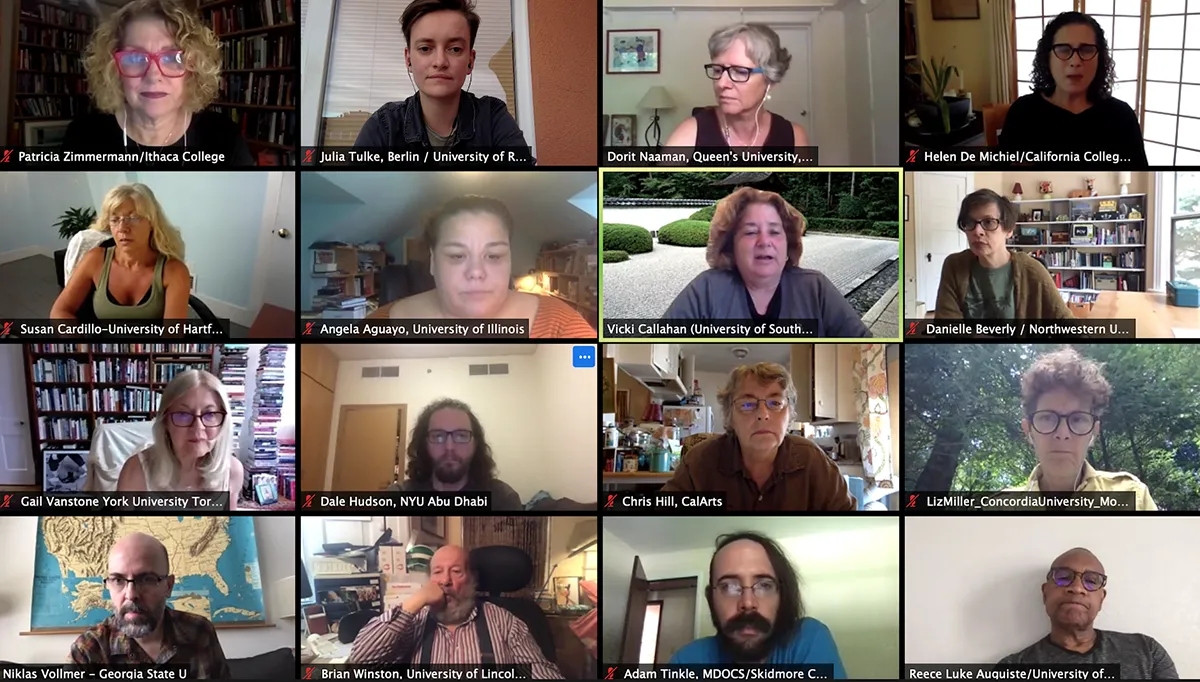The Park Center for Independent Media (PCIM) and the Finger Lakes Environmental Film Festival (FLEFF) at Ithaca College have launched a new global initiative to convene scholars, producers, makers, and journalists to explore ways to adapt and mobilize the methods of nonfiction co-creation during the coronavirus pandemic and nationwide protests against racial injustice.
The first convening was held on July 9, with scholars and practitioners from more than 20 colleges and universities from across the globe coming together.
“The goal of co-creation,” said Patricia Zimmermann, professor of screen studies and co-director of FLEFF, “is to move away from the single authored, top-down structures of traditional media practices, and focus instead on collaborative projects told with the subjects and their communities in order to offer more participatory, democratic and ethical ways of producing documentary and journalism.”
The pandemic and protests have added additional challenges to this task yet have also opened up new field-changing opportunities to reset and restructure.
“The twinning of the pandemic and protest has propelled a massive disruption in communications education in nonfiction realms. This is an exciting turning point — we have to rethink all that we do,” said Zimmermann. “Because everything we used to do may not work anymore.”
